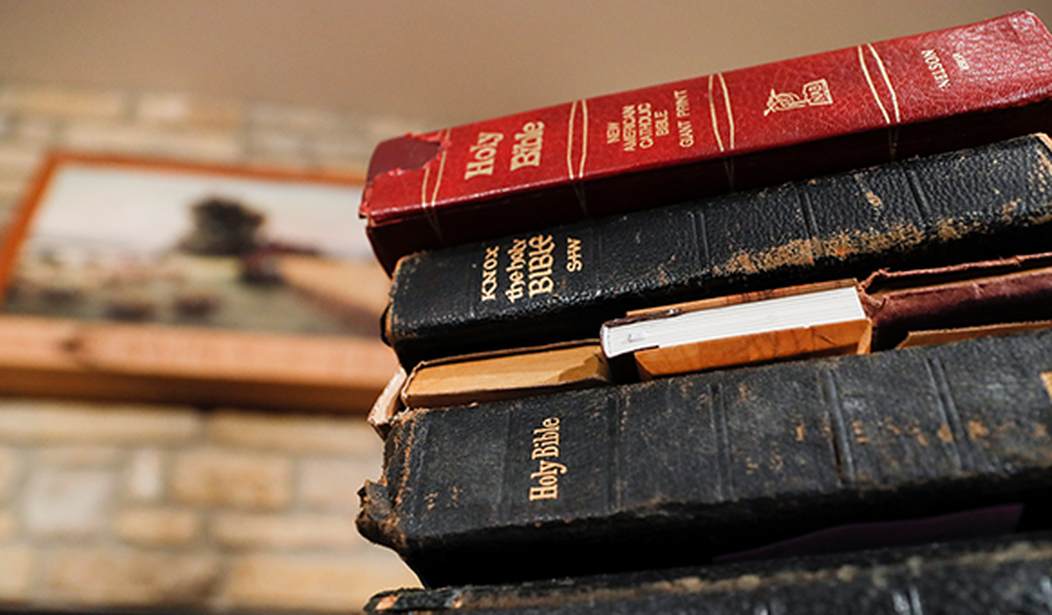Author's Note: All previous volumes of this series are here. The first 56 volumes are compiled into the book "Bible Study For Those Who Don't Read The Bible." "Part Two," featuring volumes 57-113, was published in December 2022.
Thanks for joining us today. For this topic, you can thank my husband David, who I consider a “theological philosopher king.” While taking a walk on Monday evening, I mentioned that I did not have a topic for Sunday’s Bible study. He began discussing how we need to be aware of whether we are pleasing God rather than caught up in our worldly pursuits. Then David asked me if I had received a “ding ding” (meaning if I felt called to write about pleasing God.) My answer was “yes,” and here we are.
After researching Scripture about pleasing God, I found too many passages for one study. Therefore, today, we discuss the Old Testament/Hebrew Bible and, next week, the New.
Here is my take on pleasing God: I really want to and try to use my gifts and talents to glorify Him. However, I am human, therefore a sinner, and I exist in a world of evil and non-stop distractions that work to thwart my desire to serve Him. But I will keep trying until my last day when I long to hear the Lord Jesus say, “Well done, good and faithful servant.”
But enough about me. Let’s turn to verses from the ancient Hebrew Word of God in order of appearance. During the creation process in the first chapter of Genesis, God was pleased with His work and stated six times that it “was good." Below is a more embellished phrase He used for the seventh time:
Recommended
“God saw all that he had made, and it was very good. And there was evening, and there was morning—the sixth day” (Genesis 1:31). Now, we know that for mere mortals to earn a “very good” from God is impossible since we can never compete with His feats. However, God does provide guidance, so at least we can earn a pat on the head or a blinking neon-green arrow to mark the path.
In Exodus 29, God instructed Moses about the precise details needed to consecrate priests, which included pleasing God’s “olfactory system”:
“Then burn the entire ram on the altar. It is a burnt offering to the Lord, a pleasing aroma, a food offering presented to the Lord” (Exodus 29:18). (A hint that God wants an invite to your next bar-b-que.)
In general, we please God by being obedient to Him. The Hebrew Bible is filled with stories and events where nations, rulers, or people either did or did not obey God and were rewarded or punished accordingly.
Let’s skip to 1 Kings and the following verse:
“The Lord was pleased that Solomon had asked for this” (1 Kings 3:10). For what did Solomon ask?
Those who read Vol. 231: “What You Should Know About King Solomon, Part 1” might remember this important answer, which applies to our lives about how we can please God. To briefly summarize, Solomon humbly tells God he is not up to the task of ruling a large nation. Therefore, Solomon asks the following question:
“‘Give your servant therefore an understanding mind to govern your people, that I may discern between good and evil, for who is able to govern this your great people?’” (1 Kings 3:9).
God was pleased that Solomon only asked for the intellect needed to govern His people, not earthy riches or vast power. Asking for wisdom is one of the traits that made King Solomon great. Moreover, the king always remembered that this gift came from God throughout his life. Lesson for us: All our gifts and talents are derived from God, so we can use them to glorify Him to help serve, heal, and teach others.
The Book of Psalms has much to say and teaches us how to please God. Here are some samples about praising God:
“May these words of my mouth and this meditation of my heart be pleasing in your sight, Lord, my Rock and my Redeemer” (Psalm 19:14).
“I will praise God’s name in song and glorify him with thanksgiving. This will please the Lord more than an ox, more than a bull with its horns and hooves” (Psalm 69: 30-31).
Know that God wants His people to be humble. Reminder: He is God, and we are not:
“For the Lord takes delight in his people; he crowns the humble with victory” (Psalm 149:4).
“His pleasure is not in the strength of the horse, nor his delight in the legs of the warrior; the Lord delights in those who fear him, who put their hope in his unfailing love” (Psalm 147:10-11). Since “fearing” God is not a popular thought or discussion topic, watch for a future study.
Proverbs, credited to King Solomon, offer modern wisdom:
“When the Lord takes pleasure in anyone’s way, he causes their enemies to make peace with them” (Proverbs 16:7).
“To do righteousness and justice is more acceptable to the Lord than sacrifice” (Proverbs 21:3). This Proverb is operationalized in the following verse from Jeremiah when God said:
“What do I care about incense from Sheba or sweet calamus from a distant land? Your burnt offerings are not acceptable; your sacrifices do not please me” (Jeremiah 6:20).
That passage emphasized how worldly treasures and ritual sacrifices do not matter to God if one's heart and behaviors contradict His laws and will. However, in Jeremiah, that passage pertained to Jerusalem, under siege for the people’s wicked ways and disobedience to God. See Jeremiah Chapters 5 and 6 for more study.
We conclude our discussion with advice about how to please God with this passage:
“He has shown you, O mortal, what is good. And what does the Lord require of you? To act justly and to love mercy and to walk humbly with your God” (Micah 6:8).
Let’s keep all of today’s verses in mind as we live in a world that wants to separate us from Him. Therefore, try extra hard to focus on pleasing God. Pray about what that means explicitly in your life. Amen!
See you next week for New Testament wisdom about this all-important topic.
Myra Kahn Adams is a conservative political and religious writer with numerous national credits. Her book, "Bible Study For Those Who Don't Read The Bible," reprints the first 56 volumes of this popular study. "Part 2,” with the same title, reprints Vols. 57-113. Order it here.
She is also the Executive Director of the National Shroud of Turin Exhibit, dedicated to building a future permanent Shroud of Turin exhibit in Washington, D.C. The National Shroud of Turin Exhibit recently hosted a four-day exhibit (with a VIP guest) at the National Eucharistic Congress in Indianapolis, IN. Contact: MyraAdams01@gmail.com

























Join the conversation as a VIP Member